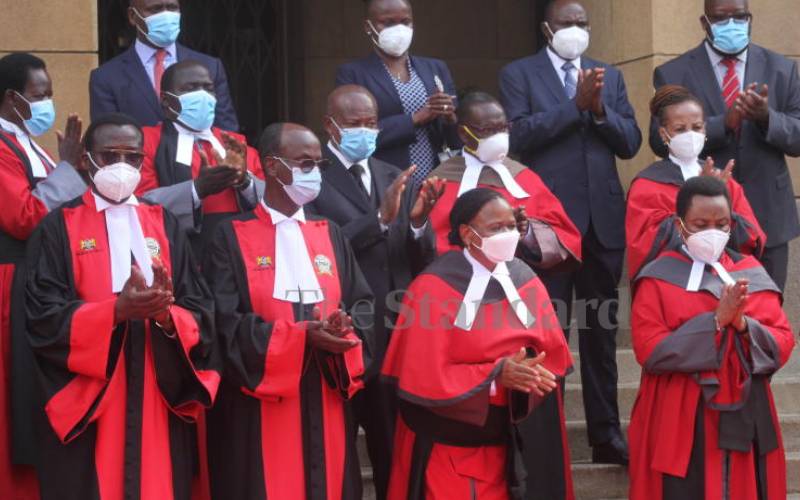×
The Standard e-Paper
Smart Minds Choose Us

Chief Justice Martha Koome (second from right) with a section of judges at the Supreme Court Building, May 2021. [Collins Kweyu, Standard]
Supreme Court judges will today start hearing a case that would have touched on their welfare - including their hiring and firing - as an appeal seeking to revive the Building Bridges Initiative (BBI) starts in the top court today.